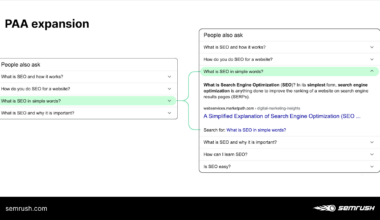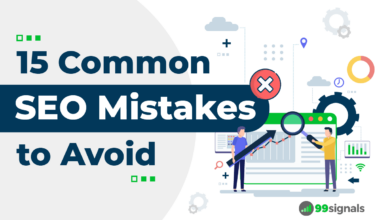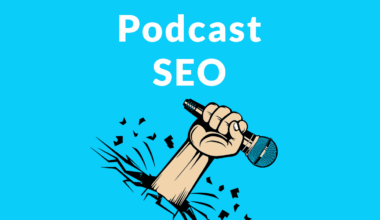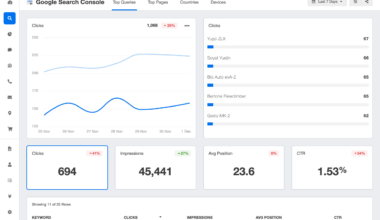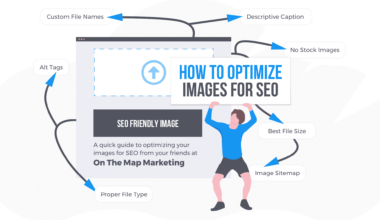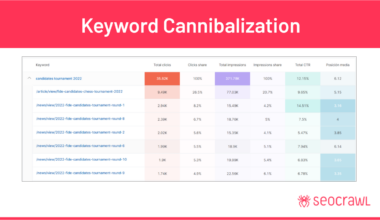Introduction: What is Off-Page SEO?
Off-Page SEO refers to the actions taken outside of your website to improve your search engine rankings. It involves all the activities that can be done outside of your website to improve its visibility and credibility. While On-Page SEO involves optimizing your website’s content and structure, Off-Page SEO is all about building links and promoting your website through various channels.
Google and other search engines use various algorithms to evaluate the authority and relevance of a website. Off-Page SEO helps search engines understand the popularity and quality of your website. When other websites link back to your site, it signals to search engines that your website is credible and trustworthy, resulting in improved search engine rankings.
Off-Page SEO involves a range of techniques, including link building, social media marketing, and guest blogging. In this article, we will explore some of the most effective Off-Page SEO strategies that can help you boost your website’s rankings. By implementing these strategies, you can improve your website’s visibility, attract more traffic, and increase your online presence.
Guest Blogging as an Off-Page Strategy
Guest blogging is a popular Off-Page SEO strategy that involves writing blog posts for other websites to link back to your site. It is an effective way to build high-quality backlinks, increase brand awareness, and establish yourself as an authority in your industry.
Here are some tips to help you get started with guest blogging:
- Identify websites that accept guest posts: Look for websites in your niche that accept guest posts. You can use search engines and social media platforms to find potential websites.
- Research the website’s guidelines: Before submitting a guest post, make sure to read the website’s guidelines carefully. This will help you understand the website’s requirements and increase your chances of getting your post published.
- Create high-quality content: Write a well-researched and informative guest post that provides value to the website’s readers. Make sure to include a link back to your website in the post.
- Follow up: After submitting your guest post, follow up with the website’s editor to ensure that it has been received and is being reviewed.
Guest blogging can be a time-consuming process, but it can pay off in the long run by improving your website’s visibility and credibility. By creating high-quality content that provides value to other websites’ readers, you can attract more traffic to your website and improve your search engine rankings.
In conclusion, guest blogging is an effective Off-Page SEO strategy that can help you build high-quality backlinks, increase brand awareness, and establish yourself as an authority in your industry. By following the tips outlined above, you can get started with guest blogging and start reaping the benefits of this powerful strategy.
Social Media Marketing for Off-Page SEO
Social media marketing is another effective Off-Page SEO strategy that can help you boost your website’s rankings. With millions of active users on various social media platforms, it has become essential for businesses to leverage social media to promote their products or services and drive traffic to their websites.
Here are some tips to help you get started with social media marketing for Off-Page SEO:
- Choose the right platforms: Identify the social media platforms that your target audience uses the most and focus your efforts on those platforms. Some popular platforms include Facebook, Twitter, Instagram, LinkedIn, and Pinterest.
- Create high-quality content: Create informative and engaging content that provides value to your followers. Use visuals such as images and videos to make your content more attractive and shareable.
- Use hashtags: Hashtags can help your content reach a wider audience and improve your visibility on social media platforms. Research relevant hashtags and use them in your posts.
- Engage with your followers: Respond to comments and messages promptly and build a relationship with your followers. This can help increase brand loyalty and drive more traffic to your website.
- Use social media advertising: Social media advertising can help you reach a larger audience and drive more traffic to your website. Platforms such as Facebook and Instagram offer various advertising options, including sponsored posts and targeted ads.
Social media marketing can be a powerful tool for Off-Page SEO, but it requires consistent effort and a clear strategy. By creating high-quality content, engaging with your followers, and leveraging social media advertising, you can improve your website’s visibility and attract more traffic.
In conclusion, social media marketing is an effective Off-Page SEO strategy that can help you boost your website’s rankings and drive more traffic to your website. By implementing the tips outlined above, you can get started with social media marketing and start reaping the benefits of this powerful strategy.
Link Building Tactics for Improved Rankings
Link building is a crucial Off-Page SEO strategy that involves getting other websites to link back to your website. When other reputable websites link back to your website, search engines view your website as credible and trustworthy, resulting in improved search engine rankings. Here are some effective link building tactics that can help you boost your website’s rankings:
1. Create high-quality content: One of the most effective ways to get other websites to link back to your website is by creating high-quality and informative content. When your content provides value to other websites’ readers, they are more likely to link back to your website.
2. Guest blogging: As discussed earlier, guest blogging is an effective way to build high-quality backlinks. When you write a guest post for another website, you can include a link back to your website in the post, resulting in improved search engine rankings.
3. Broken link building: Broken link building involves finding broken links on other websites and offering to replace them with links to your website. This tactic is effective because website owners are often looking to fix broken links, and you can provide them with a valuable solution while also building backlinks to your website.
4. Infographics: Infographics are a great way to attract backlinks to your website. When you create an informative and visually appealing infographic, other websites are more likely to share it on their website and link back to your website as the source of the infographic.
5. Directory listings: Directory listings are a simple yet effective way to build backlinks to your website. You can submit your website to relevant directories in your industry and get a backlink to your website in return.
Link building can be a time-consuming process, but it is essential for improving your website’s rankings. By implementing the tactics outlined above, you can attract high-quality backlinks to your website and improve your search engine rankings.
In conclusion, link building is a crucial Off-Page SEO strategy that can help you improve your website’s visibility and credibility. By creating high-quality content, guest blogging, broken link building, creating infographics, and directory listings, you can attract high-quality backlinks to your website and improve your search engine rankings.
Final Thought: Measuring the Success of Off-Page SEO
Measuring the success of Off-Page SEO can be challenging, but it is essential to understand the impact of your efforts and make necessary adjustments to your strategy. Here are some metrics you can use to measure the success of your Off-Page SEO efforts:
1. Backlinks: Backlinks are one of the most critical metrics for measuring the success of your Off-Page SEO efforts. You can use tools like Ahrefs or Moz to monitor the number of backlinks to your website. The more high-quality backlinks you have, the better your Off-Page SEO strategy is performing.
2. Referral traffic: Referral traffic is traffic that comes to your website from other websites. You can use Google Analytics to track referral traffic and see which websites are sending traffic to your website. The more referral traffic you have, the better your Off-Page SEO strategy is performing.
3. Social media engagement: Social media engagement is another critical metric for measuring the success of your Off-Page SEO efforts. You can use social media analytics tools to track engagement metrics like likes, shares, and comments. The more engagement you have, the better your Off-Page SEO strategy is performing.
4. Brand mentions: Brand mentions are instances where other websites or social media accounts mention your brand or website without linking to it. You can use tools like Google Alerts or Mention to monitor brand mentions and see how many times your brand is being mentioned online. The more brand mentions you have, the better your Off-Page SEO strategy is performing.
5. Search engine rankings: Finally, search engine rankings are the ultimate measure of success for your Off-Page SEO efforts. You can use tools like Google Search Console or SEMrush to monitor your search engine rankings and see how they change over time. The higher your search engine rankings, the better your Off-Page SEO strategy is performing.
In conclusion, measuring the success of your Off-Page SEO efforts is essential for understanding the impact of your strategy and making necessary adjustments. By monitoring metrics like backlinks, referral traffic, social media engagement, brand mentions, and search engine rankings, you can gauge the effectiveness of your Off-Page SEO strategy and make data-driven decisions to improve your website’s visibility and credibility.











